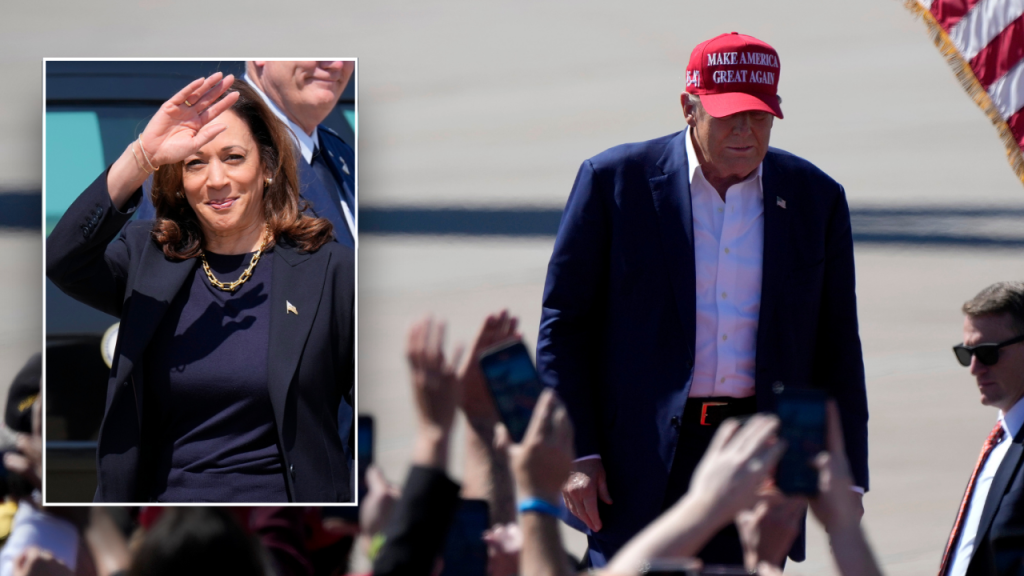Former President Trump delivered a campaign speech in which he warned of a potentially bleak future under a Harris presidency, particularly for Israel. He claimed that Israel would be “doomed” if Harris were to become president and suggested that the upcoming November election “may be our last.” Trump promised to address the chaos in the Middle East and prevent World War III, stating that he was the only one capable of doing so. He warned that if he did not win the election, Israel would cease to exist, leading to catastrophic consequences for the United States.
Acknowledging that his statements were bold, Trump elaborated on his argument by emphasizing the existential threat facing Israel and the potential impact on the United States. He asserted that if Israel were to fall, it would have dire consequences for the country, potentially resulting in the loss of the nation itself. Trump expressed a sense of urgency, emphasizing the gravity of the situation and the necessity of his victory in the upcoming election to prevent such a catastrophic outcome.
Harris’ campaign has responded to Trump’s allegations, accusing him of threatening democracy and asserting that he aspires to be an autocrat. Harris highlighted Trump’s relationships with tyrants and dictators, suggesting that he is easily influenced by flattery and favors. She emphasized her commitment to holding autocrats accountable and standing up to authoritarian leaders. The Democratic nominee painted a starkly different picture of leadership, contrasting herself with Trump’s perceived authoritarian tendencies.
Trump’s warnings about a potential Harris presidency and the fate of Israel have added to the contentious nature of the upcoming election. The former president’s claims about the existential threat facing Israel and the implications for the United States have raised concerns among his supporters. Trump’s rhetoric reflects his focus on national security and foreign policy issues, framing the election as a critical juncture in safeguarding the country’s future. The contrast between Trump and Harris’s approaches to leadership and international relations underscores the deep ideological divisions at play in the current political landscape.
While Trump’s speech may have energized his base and galvanized support for his candidacy, it has also sparked controversy and debate. The stark warnings about the potential consequences of a Harris presidency and the existential threat facing Israel have generated strong reactions from both sides of the political spectrum. The heated rhetoric and allegations exchanged between the candidates reflect the high stakes of the upcoming election and the deep divisions within American society. Trump’s portrayal of Harris as a threat to national security and stability underscores the intense partisan polarization shaping the political discourse in the lead-up to the November election.
As the election approaches, the clash between Trump and Harris intensifies, with each candidate presenting starkly different visions for the future of the country. Trump’s warnings about the fate of Israel and the potential implications for the United States highlight the strategic importance of national security and foreign policy in shaping the political narrative. The contrasting perspectives on leadership and governance offered by Trump and Harris reflect the broader ideological and policy differences at play in the current political landscape. The upcoming election is poised to be a critical moment in determining the direction of the country and defining its role in the global arena.


